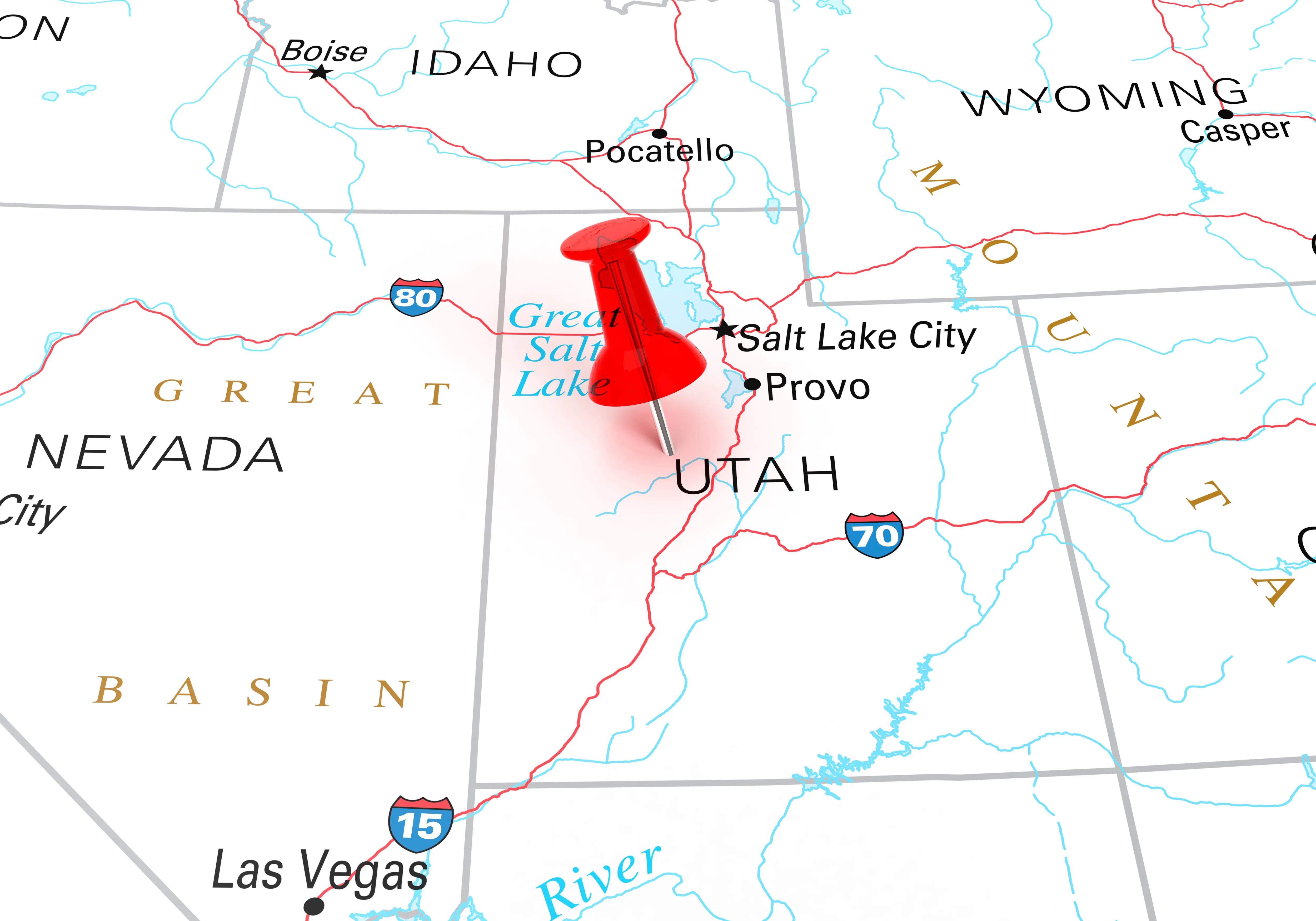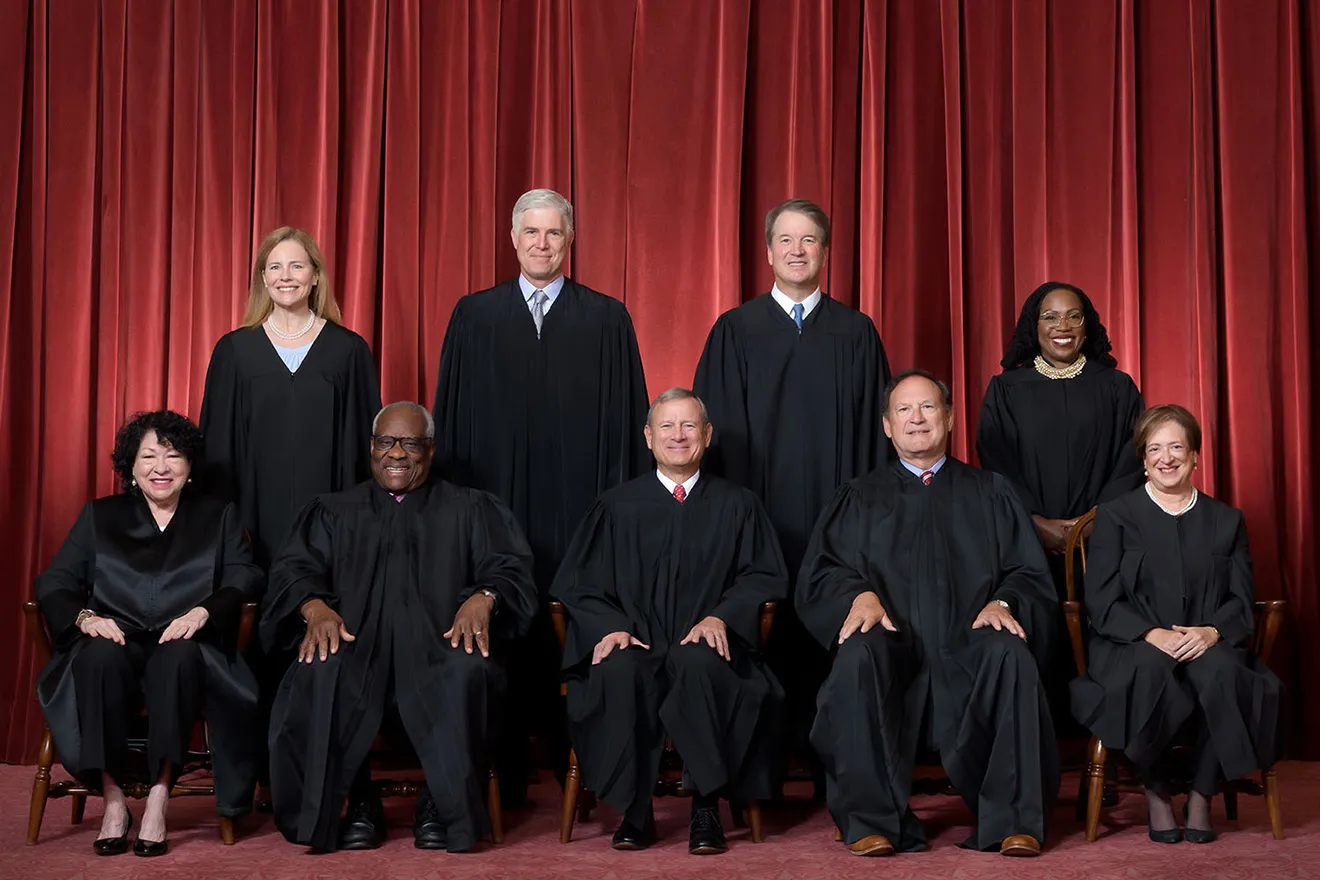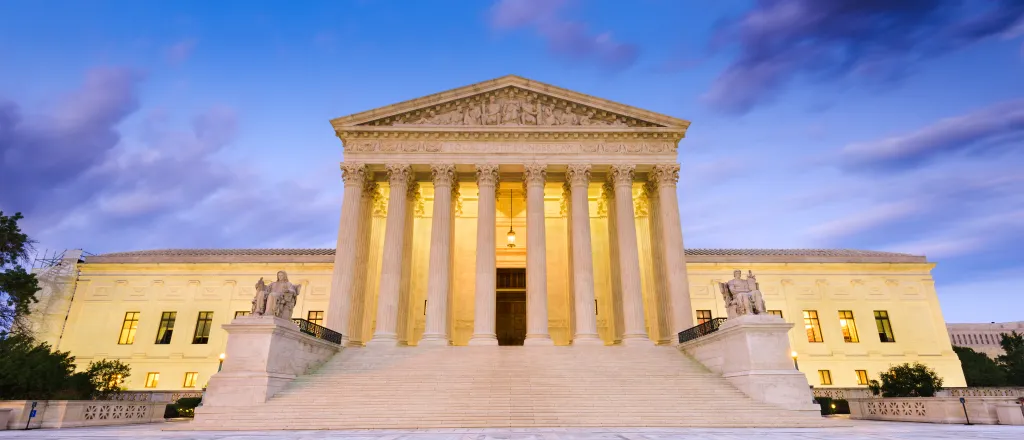
Supreme Court flooded with amicus briefs in Trump 14th Amendment case from Colorado
© iStock - SeanPavonePhoto
(Colorado Newsline) Constitutional law experts, state elections officials and a long list of Republican political figures are among those who have flooded the U.S. Supreme Court with their views on a landmark Colorado ruling blocking former President Donald Trump from the state’s 2024 ballot under a Civil War-era insurrection clause.
Hundreds of pages of amicus — or friend-of-the-court — briefs have been filed by outside parties since the nation’s highest court agreed to take up Trump’s appeal of the Colorado Supreme Court’s December 18 ruling, which found that the Republican presidential frontrunner is ineligible to hold office under the 14th Amendment to the Constitution. Section 3 of the amendment prohibits an “officer of the United States” who took an oath to support the Constitution and then “engaged in insurrection” from holding office again.
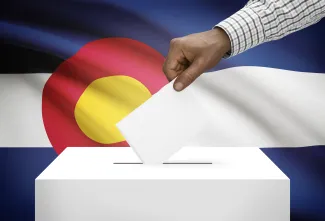
About two-thirds of the 47 amicus briefs filed in the case as of Jan. 26 came from parties supporting Trump’s appeal, including nearly 200 Republican members of Congress, officeholders in over 25 GOP-controlled states and several of Trump’s former rivals for the Republican presidential nomination.
Roughly a dozen other briefs were officially filed in support of neither party, though many of them seek to support legal arguments made by proponents of Trump’s disqualification and reject theories advanced by Trump’s legal team.
In stark contrast to the hundreds of prominent Republican officials who have weighed in, only one sitting Democratic officeholder at either the state or federal levels, Michigan Secretary of State Jocelyn Benson, filed an amicus brief before the court. Benson’s brief “takes no position” on Trump’s eligibility but asks the court for a decisive ruling on a question of “monumental significance.”
“Finality must come now so that the states and their election officials can conduct efficient and meaningful elections,” Benson wrote. “Neither purpose would be served by a decision from this Court that left open questions about the proper application of Section 3.”
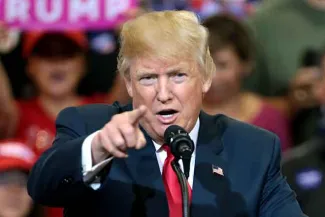
U.S. President Donald Trump. FlickrCC - Gage Skidmore
The briefs submitted to the court touch on nearly every major issue raised in the case since the beginning of a five-day trial in Denver District Court last October, including whether Section 3 is “self-executing” or requires an act of Congress to be enforced; whether the Jan. 6 attack on the Capitol amounted to an “insurrection” and whether Trump “engaged” in it; and whether the president is an “officer of the United States” as covered by Section 3.
District Court Judge Sarah B. Wallace initially rejected the challenge to Trump’s candidacy, endorsing the view that Section 3 didn’t apply to former presidents or the office of the presidency. In its 4-3 decision, the Colorado Supreme Court overturned that ruling, calling such an interpretation “inconsistent with the plain language and history” of the amendment.
Legal theories at odds
Among the parties supporting Trump’s appeal is the Center for Constitutional Jurisprudence at the Claremont Institute, which has been described as an “anti-democracy think tank” and a “nerve center for the American right” under Trump.
Attorney John Eastman, a key architect of the former president’s scheme to block congressional certification of the results of the 2020 election on Jan. 6, 2021, is among the many prominent Trump allies affiliated with the Claremont Institute. Eastman has been indicted alongside Trump for an alleged conspiracy to overturn the election by prosecutors in Fulton County, Georgia.
The Claremont Institute’s brief was filed by John Yoo, a senior fellow at the organization and a former federal official best known as the author of the so-called “torture memos,” legal opinions advising that detainees in the War on Terror were not entitled to protections under the Geneva Conventions.
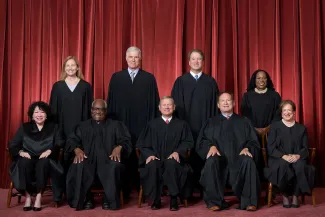
Memebers of the Supreme Court of the United States 2022 - WIkimedia - Public Domain
In addition to arguing that the president is not an “officer of the United States,” Yoo’s brief endorses the view that Section 3 of the 14th Amendment can’t be enforced without an act of Congress, pointing to Section 5 of the amendment, which states that “Congress shall have power to enforce, by appropriate legislation, the provisions of this article.”
“The courts should look to Congress to enact enforcement legislation under Section 5 of the 14th Amendment,” Yoo writes. “But no relevant congressional legislation enabling the States or private persons to enforce Section 3 exists here.”
But a brief filed jointly by eight scholars of constitutional law, including Douglas Laycock of the University of Virginia and Deborah Pearlstein of Princeton University, calls that argument “profoundly mistaken.” Such an interpretation, they argue, runs counter to the Constitution’s supremacy clause, which together with other constitutional provisions “assigns state officers a central role in enforcing federal law.”
“The Fourth Amendment, to cite just one example, would be a dead letter if state executive officers and state courts did not enforce it on a daily basis,” the scholars write. “(Trump’s) construction of Section 3 is fundamentally at odds with our Constitution’s system of dual sovereignty.”
Colorado Supreme Court Justice Carlos Samour, who dissented from the court’s December 18 ruling, is among those who have cited the lack of congressional legislation under Section 5, arguing in his dissent that the insurrection clause “is not self-executing, and that Congress alone is empowered to pass any enabling legislation.”
But in another brief in support of Trump’s appeal, Seth Barrett Tillman, a constitutional law professor at Ireland’s Maynooth University, warned Supreme Court justices against deciding the case on the self-execution issue, raising the specter of additional challenges to Trump’s eligibility at a later date.
“If the Court holds that Section 3 is not self-executing, and requires federal enforcement legislation, the litigation in Colorado and in other state courts would come to a halt. But in Congress, an important date looms on the horizon: Jan. 6, 2025,” Tillman writes.
“Can the joint session of Congress determine that electoral votes for a purportedly disqualified presidential candidate are not ‘regularly given’? There is no clear answer to this question,” his brief concludes. “By contrast, a holding that the President is not an ‘Officer of the United States’ would authoritatively resolve the Section 3 case against the Petitioner.”
Oral arguments in the Supreme Court case are scheduled for February 8.
Colorado Newsline is part of States Newsroom, a network of news bureaus supported by grants and a coalition of donors as a 501c(3) public charity. Colorado Newsline maintains editorial independence. Contact Editor Quentin Young for questions: info@coloradonewsline.com. Follow Colorado Newsline on Facebook and Twitter.



